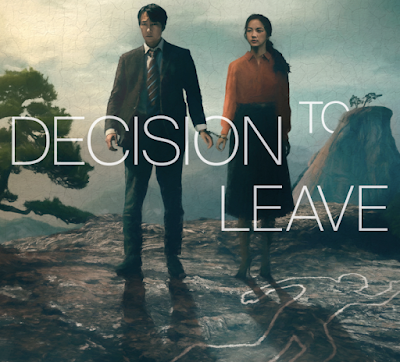To lose someone you love is careless. To lose two starts to become a major problem. This movie, another from master director Park Chan-wook (and, yes, I believe we can easily refer to him as a master director by now), is a film soaked in suspicion. But that is only one part of it. It is also a dark romance, and a study of loneliness, determination, and how love takes many forms.
Park Hae-il plays a married detective who ends up drawn into the investigation of a death that could either be a murder or a suicide. Things get more complicated when he meets the man’s widow (played by Tang Wei), a young Chinese migrant who was clearly mistreated throughout her marriage. The two grow close, helped along by the fact that our lead only sees his wife (Lee Jung-hyung) once a week. But this potential love affair seems doomed from the start, not least because any relationship between a detective and the prime suspect in a murder investigation would lead to a serious conflict of interest. Time passes, viewers see this central relationship go through a number of big ups and downs, and there’s eventually another crime that seriously tests the faith that both leads may have in one another.
Co-written by Chan-wook and Jeong Seo-kyeong, Decision To Leave is a frankly superb study of people transforming themselves in a variety of ways, whether that is helped by someone else or whether it is a transformation created by sheer self-will and the ability to do whatever is required to completely change your circumstances. The title refers to any number of moments within the film, and it is the motivation behind the decisions being made that keeps you on your toes as the plot twists and turns from one version of the truth to the next.
As director, Chan-wook also ensures that he uses a number of effective tricks to liven up what could have otherwise been fairly straightforward, and maybe even dull, sequences. The best example of this is when one character is observing another, being seated in a car and peering through some binoculars, but depicted onscreen as being directly beside their oblivious “target” while they narrate the mundanity of their standard schedule. There’s also an impressive refusal to paint any one character as simplistically good or bad, even a more dangerous criminal being pursued for his part in a violent crime of passion, and the end of the film will leave many conflicted, but in a good way. There is much to mull over here, and Decision To Leave celebrates what it shows as a real, loving, connection between people, despite sketching out a background of pain and problems.
Hae-il and Wei are both excellent in their main roles. The former convincingly portrays someone who seems to find a strange peace and comfort after years spent dealing with insomnia and obsession, while the latter is someone that it is easy to root for, despite not always being depicted in the best light (to put it mildly). Jyung-hung also does good work, as do a number of other supporting cast members, but our two leads spend many scenes focusing on one another, often zoning out other people, which helps us to feel as if they are the only two people who matter in the world being presented onscreen.
I don’t think this is perfect, but I could well change my mind on that after a repeat viewing. It’s damn close though. The performances, the clean and lush visual style (a rooftop confrontation stands out as especially impressive, as well as en extended “reveal” at about the mid-point), the accompanying score by Jo Yeong-wook, there’s nothing I would think to change here. Everyone should make a decision to see this. ASAP.
9/10
If you have enjoyed this, or any other, review on the blog then do consider the following ways to show your appreciation. A subscription/follow costs nothing.
It also costs nothing to like/subscribe to the YouTube channel attached to the podcast I am part of - https://www.youtube.com/channel/UCErkxBO0xds5qd_rhjFgDmA
Or you may have a couple of quid to throw at me, in Ko-fi form - https://ko-fi.com/kevinmatthews

No comments:
Post a Comment